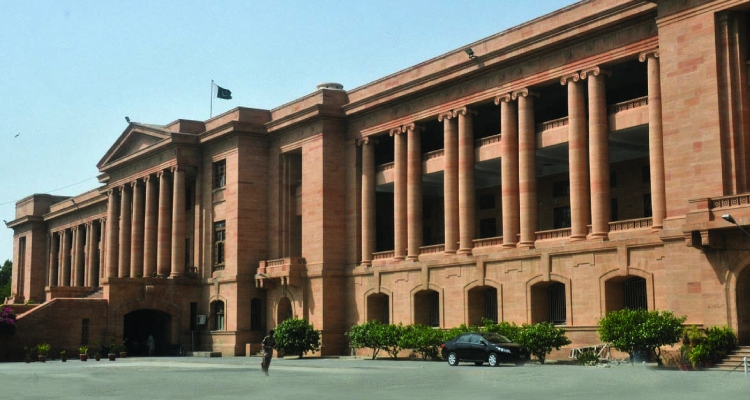
The Sindh High Court on Friday has issued notices to the Cabinet Division and the Ministry of Law and Justice regarding two constitutional petitions challenging the validity of the 26th Constitutional Amendment.
The petitions, filed by three lawyers, seek to declare the amendment ultra vires to the Constitution, raising serious concerns about the independence of Pakistan’s judiciary.
The hearing took place before a two-judge bench led by Chief Justice Mohammad Shafi Siddiqui and Justice Jawad Akbar Sarwana. The bench has also notified the attorney general and the advocate general of Sindh, scheduling further proceedings in approximately two weeks. The petitions list various federal and provincial authorities as respondents.
During the proceedings, the bench acknowledged that the petitions specifically challenge the 26th Constitutional Amendment, which has reinstated certain articles. They stated, “We are cognizant of the fact that in terms of the amendment such questions are to be brought before the constitutional benches.”
The court clarified that the application of Article 202A, which facilitates the establishment of constitutional benches in provinces, can only advance once the relevant provincial resolutions are passed. Without these resolutions, the SHC confirmed that it would continue to exercise jurisdiction according to its assigned roster.
The petitions argue that the 26th Amendment undermines the structure of justice, particularly concerning articles related to judicial processes. Advocates Ali Tahir and Ebrahim Saifuddin, representing the petitioners, contended that the amendment allows parties, including the federation or provinces, to “pick and choose benches for their own cause and for their own litigation.”
This approach, they argued, violates the fundamental principle that justice must not only be done but must also be seen to be done.
The advocates expressed alarm that the amendment illustrates how parliamentarians have exceeded their authority by influencing the judiciary, especially through the formation of the Judicial Commission of Pakistan.
They cautioned that the executive’s introduction of this amendment effectively “stamped down the court,” allowing litigants to assess judges’ performance, which could coerce future benches and undermine judicial independence.
Recognizing the gravity of the issues raised, the bench stated, “Points raised require consideration. Since some of the articles through a recent amendment via the 26th Amendment of the Constitution have been challenged, therefore, it requires a notice to the attorney general for Pakistan as well in terms of Order XXVII-A CPC.”
In addition to the federal ministries, the petitions also name the chief secretary of Sindh and the secretary of the Sindh Assembly as respondents, highlighting the far-reaching implications of the 26th Constitutional Amendment on the rule of law and fundamental rights in Pakistan.
The court’s actions reflect a critical examination of legislative measures that could potentially erode judicial independence and the principles of justice in the country.




